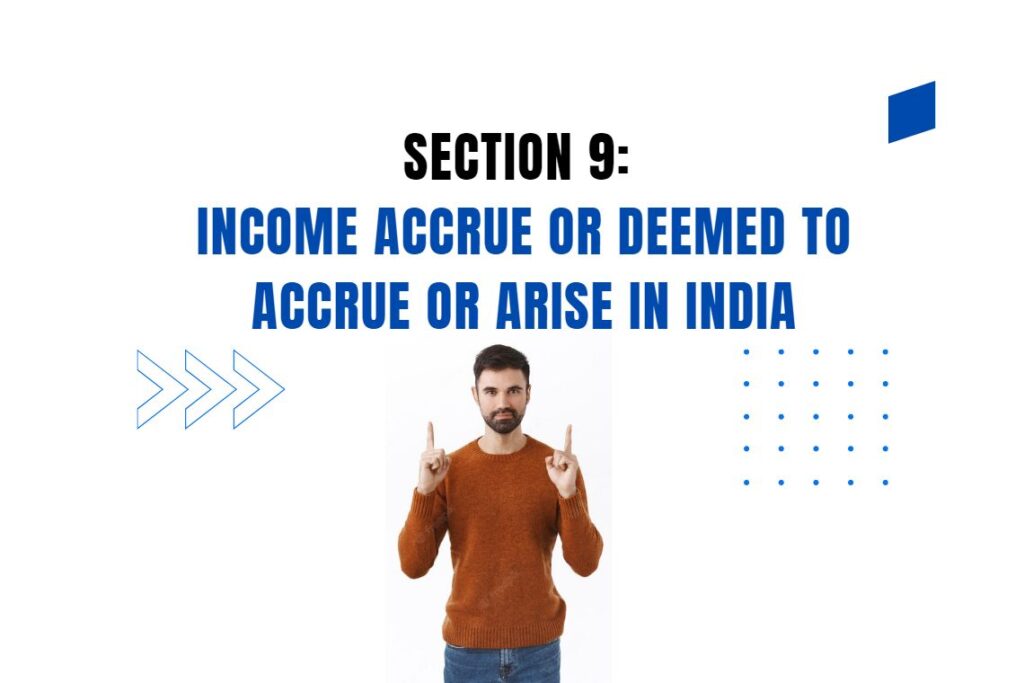Section 7 of the Income Tax Act, 1961, defines certain incomes that are deemed to be received in India, even if not actually received by the taxpayer. This legal fiction ensures that specific benefits or contributions are taxed in the year they are credited or made available, regardless of actual cash receipt.
Key Incomes Deemed to Be Received Under Section 7
- Employer’s Excess Contribution to Recognized Provident Fund (RPF)
- If an employer contributes more than 12% of an employee’s salaryto a recognized provident fund, the excess amount is deemed as income received by the employee in that financial year.
- Excess Interest on Recognized Provident Fund (RPF)
- If the interest credited to an RPF account exceeds 9.5% per annum, the additional interestis treated as income deemed to be received.
- Transferred Balance from Unrecognized to Recognized Provident Fund
- When an employee transfers their balance from an unrecognized provident fund (UPF)to a recognized provident fund (RPF), certain portions of the transferred amount may be deemed as taxable income.
- Employer’s Contribution to Pension Schemes (Section 80CCD)
- Contributions made by the Central Government or any employerto an employee’s pension account (e.g., National Pension System – NPS) are deemed as income received by the employee in that year.
- Dividend Income
- Dividends declared, distributed, or paidby a company are deemed income in the year they are made available to shareholders.
- Interim dividendsare taxable when unconditionally made available to entitled members.
Importance for Different Taxpayer Categories?
- For Non-Residents (NRs):Normally, NRs are taxed only on income received in India. However, deemed receipt rules bring certain benefits (like excess PF contributions) into the tax net even if not physically received in India.
- For Residents (RORs & RNORs):While residents are taxed on global income, deemed receipt rules determine the year of taxation for certain benefits.
- Cash Flow Impact:Tax liability arises on deemed amounts even if not actually received, affecting financial planning .
Comparison with Actual Receipt
| ASPECT | ACTUAL RECEIPT | DEEMED RECEIPT |
| Definition | First time taxpayer gains control of money | Legal fiction; taxed even if not received |
| Taxable for NRs? | Only if received in India | Yes, if deemed under Section 7 |
| Examples | Salary credited to bank account | Excess PF contributions, dividends declared but not withdrawn |
Recent Updates (Income Tax Act 2025)
- The 2025 Actretains the same deemed receipt principles but replaces “previous year” with “tax year” terminology


![Residential Status [Sections 5 to 9B]](https://incometaxmanagement.in/wp-content/uploads/2023/09/Residential-Status-Sections-5-to-9B-1024x683.jpg)

![EXEMPTED INCOMES [Section – 10, 10AA, 11 to 13A]](https://incometaxmanagement.in/wp-content/uploads/2023/09/Exempted-Incomes-Section-10-1024x683.jpg)

![Income of an Electoral Trust shall be Exempt [Section 13B]](https://incometaxmanagement.in/wp-content/uploads/2023/10/61-Exempted-Incomes-Section-13B-1024x683.png)
![Incomes of Political Parties [Section-13A]](https://incometaxmanagement.in/wp-content/uploads/2023/10/60-Exempted-Incomes-Section-13A-1024x683.png)
![Special Provisions in respect of Newly-established Units in Special Economic Zones (SEZ) [Section-10AA]](https://incometaxmanagement.in/wp-content/uploads/2023/10/59-Exempted-Incomes-Section-10AA-1024x683.png)
![Exemption in respect of income chargeable to Equalization Levy [Section 10(50)]](https://incometaxmanagement.in/wp-content/uploads/2023/10/58-Exempted-Incomes-Section-1050-1024x683.png)
![Income of a Developmental Financing Institution (DFI) to be Exempt [Section 10(48E)]](https://incometaxmanagement.in/wp-content/uploads/2023/10/57-Exempted-Incomes-Section-1048E-1024x683.png)
